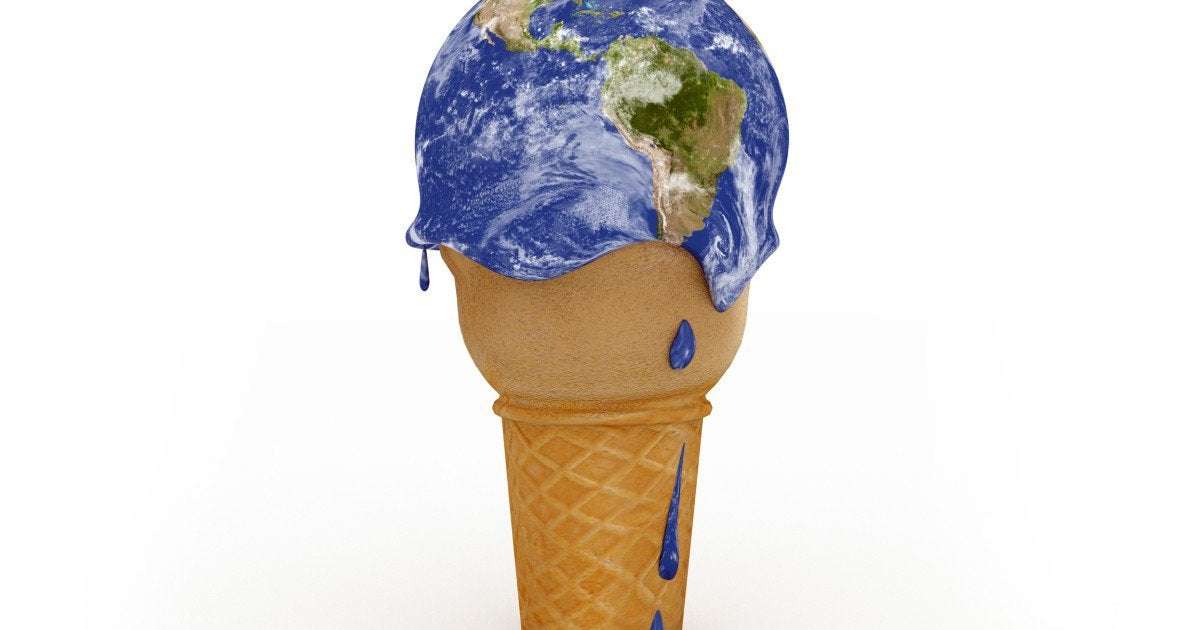What would Earth’s climate naturally be doing if it weren’t for human intervention? Researchers at Northern Arizona University have now analyzed over 12,000 years of climate data, and found that human-induced warming interrupted and reversed a long-term natural global cooling period.
It’s no secret that the Earth is heating up at an incredible speed, with recent months, years and decades all breaking temperature records. But this data only goes back to the 1880s, when observations began being routinely recorded. So how does the current trend compare in the longer term?
To find out, researchers have been compiling data from various sources that stretch back many millennia. A few months ago, a team of 93 scientists published a particularly comprehensive record of paleoclimate data, spanning the past 12,000 years. It includes 1,319 data records from samples like lake deposits, marine sediments, peat, cave deposits, coral, and glacier ice cores, collected from 679 sites around the world.
From that, the researchers were able to chart changes in the surface air temperature over the last 12,000 years – a time when the world was coming out of the last Ice Age. This was then compared to the average for the century between 1800 and 1900, to track how the Industrial Revolution might have changed things.
A chart demonstrating temperature changes over the past 12,000 years, relative to the 19th century average Victor O. Leshyk, Northern Arizona University
As expected, at the beginning of that period temperatures were much colder than the 19th century baseline. But they steadily warmed up over the next several millennia, eventually surpassing the baseline. Temperatures peaked around 6,500 years ago, and since then the planet has been slowly but surely cooling down.
“The rate of cooling that followed the peak warmth was subtle, only around 0.1 °C (0.2 °F) per 1,000 years,” says Michael Erb, co-author of the study. “This cooling seems to be driven by slow cycles in the Earth’s orbit, which reduced the amount of summer sunlight in the Northern Hemisphere, culminating in the ‘Little Ice Age’ of recent centuries.”
Of course, the world is no longer cooling – human activity saw to that. Instead, we’ve raised average temperatures by as much as 1 °C (1.8 ° F) since the mid-19th century. That’s a huge spike in a relatively short time, rising even higher than that peak 6,500 years ago.
“It’s possible that the last time the sustained average global temperature was 1°C above the 19th century was prior to the last Ice Age, back around 125,000 years ago when sea level was around 20 feet higher than today,” says Darrell Kaufman, lead author of the study.
Although we’re heading into largely uncharted territory, in terms of climate change, investigating these historic patterns can help us better understand what might lie ahead, under different scenarios.
The research was published in the journal Scientific Data.

Demius9 on July 1st, 2020 at 13:29 UTC »
I see a lot of discussion about how we are screwed and some discussion about how large entities can act (corporations, nations, etc) but this still makes us as individuals feel helpless. This leads me to the following, potentially stupid series of questions:
Is there anything we, on the individual level, can do for our future generations? Things we can teach our kids like sciences, basic farming, things like that? Are there places we should move to or away from? Technologies we should explore? (Thinking big things both to help this planet but also to potentially move off this planet?)
I know sometimes questions like these may appear dumb but all it takes is one visionary either in our generation or future generations to go against the grain and try something when everyone else says it’s impossible. Maybe that one person can make a change?
dudeperson3 on July 1st, 2020 at 12:11 UTC »
So does that mean if we were in a natural warming period we'd be magnitudes more boned?
Wagamaga on July 1st, 2020 at 07:28 UTC »
What would Earth’s climate naturally be doing if it weren’t for human intervention? Researchers at Northern Arizona University have now analyzed over 12,000 years of climate data, and found that human-induced warming interrupted and reversed a long-term natural global cooling period.
It’s no secret that the Earth is heating up at an incredible speed, with recent months, years and decades all breaking temperature records. But this data only goes back to the 1880s, when observations began being routinely recorded. So how does the current trend compare in the longer term?
To find out, researchers have been compiling data from various sources that stretch back many millennia. A few months ago, a team of 93 scientists published a particularly comprehensive record of paleoclimate data, spanning the past 12,000 years. It includes 1,319 data records from samples like lake deposits, marine sediments, peat, cave deposits, coral, and glacier ice cores, collected from 679 sites around the world.
https://www.nature.com/articles/s41597-020-0530-7